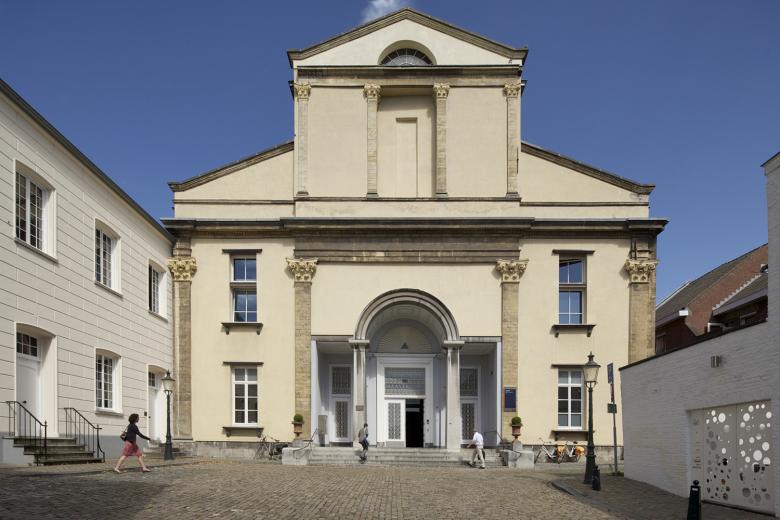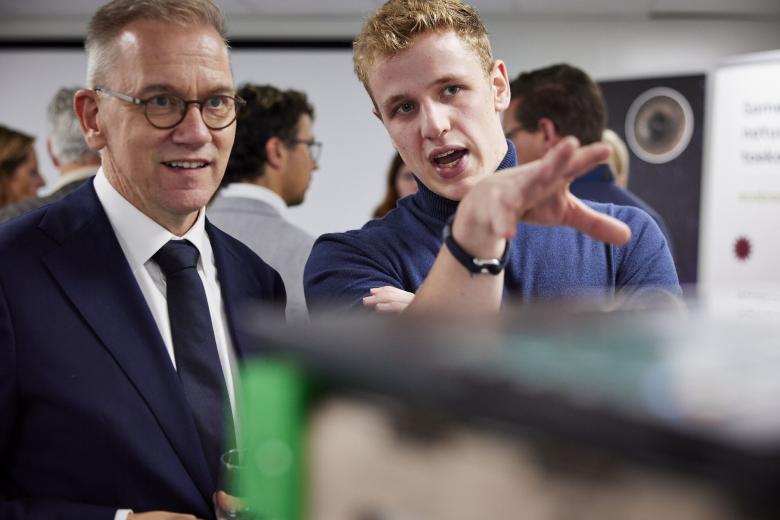Preparing for complex interventions with 3D-printed heart valves
A three-dimensional printed copy of a patient-specific heart valve allows heart surgeons at Maastricht UMC+ to meticulously prepare for complex surgery and perform it as efficiently and safely as possible. The artificial heart valve, which is placed in a specially designed simulator, can also be used for training purposes. The Maastricht-based heart surgeons have written an article on the advantages of this special type of personalised medicine in the scientific journal Interactive CardioVasc Thoracic Surgery.
One of the most complex interventions on the heart is mitral valve surgery. The mitral valve allows oxygen-rich blood from the lungs to flow to the body. If this valve does not function well, various problems can occur, which may ultimately result in heart failure. Surgeons choose the optimum treatment available to suit the unique characteristics of the patient. This may be an operation in which the thorax is opened, or a minimally invasive intervention requiring just one or several small incisions. Whatever method they choose, surgeons strive to perform a safe and efficient operation, one that helps the patient and involves as few side-effects as possible. However, this is not always easy and depends on the knowledge, skills and experience of the surgeon.
Simulator
The use of minimally invasive techniques for heart valve surgery requires skills that are difficult to master. Moreover, experience can usually only be gained on patients during surgery. It was for this reason that the Maastricht-based heart surgeon Peyman Sardari Nia devised a simulator with which the operation could be practised without a patient. Thanks to current developments in 3-D printing, he has since been able to add an extra dimension. An exact silicone copy can now be made of every possible type of heart valve. In this way, the specific characteristics of each individual patient can be replicated. This has several advantages, particularly when it comes to complex cases.
Specialised
‘Actually, you have to see it as a special type of personalised medicine, says Sardari Nia. ‘You see, we plan the intervention based on the unique structure of the patient’s heart valve. This makes sure there are no surprises once we get into the operating theatre. Ultimately, this results in effective procedures with guaranteed patient safety.’ Heart surgeons now come to Maastricht from all over the world to learn how to use new techniques, including those used to make the simulation model and the 3-D printed heart valves. The Maastricht UMC+ Cardiovascular Center has its own specialised mitral valve team that is able to treat patients based on their individual needs, from the first consultation through to post-operative care.
See www.youtube.com/watch?v=saGGNLbU4tI for an impression of the simulator.
Also read
-
UM seeks new balance between the university and student associations
Maastricht University is suspending its relationship with student associations Tragos and Circumflex until further notice. Discussions with the boards of these associations have revealed that agreements outlined in the Code of Conduct have not been upheld. Experience from recent years shows that these...
-
Opportunities and concerns take centre stage during Minister Bruins' working visit to Maastricht
On Friday afternoon, 18 October, Minister Eppo Bruins (Education, Culture, and Science) paid a working visit to Maastricht. There, he was briefed by Limburg's educational institutions on current educational topics from the Education Manifesto. The minister also engaged in conversations with teachers...
-
Education minister's parliamentary letter: threat to education and region draws nearer
On 15 October, education minister Bruins informed the Netherlands House of Representatives of his plans to reduce the number of international students in the Netherlands through the Internationalisation in Balance Act (‘Wet Internationalisering in Balans’). Maastricht University has serious concerns...